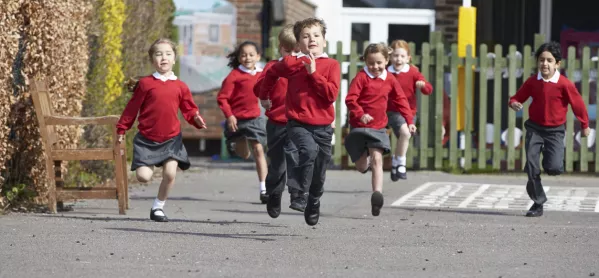Ah, the humble playground. All schools have one, and largely they are all ignored.
And yet, within its boundaries, children learn so much. They learn skills that stay with them for ever, taught largely through osmosis from other children.
Teamwork, leadership, inclusivity, positive reinforcement, honesty and even bullying are skills learned on a daily basis. Children learn these skills because they are allowed to just get on with it, with the adults normally around the periphery acting as referees to any conflict.
Playground learning
However, with just a little imagination and effort, the experiences and skills learned could be so much more beneficial.
Playgrounds and playtimes should be given so much more importance. Let’s start with the opportunities they offer for the development of healthy individuals, encouraging pupils into a life of physical activity. The playground encourages them to appreciate the outdoors and all that it can offer.
Add to that the opportunities for children to get away from the regimented constraints of the classroom and think outside the box. This allows the development of free minds and free bodies, to a point of course.
And look at the social skills that the playground can teach so easily. Cooperation between pupils is a vital element of every playground, creating natural leaders and also encouraging teamwork. Competition and confrontation naturally come from this, and children can quickly learn how to resolve such issues.
Dealing with diversity happens every day in the playground, as does communication and negotiation, plus coping strategies and perseverance. The playground is where physical and emotional skills can work in unison.
Playtime: physical and emotional skills
A successful playtime can increase the learning capacity in all our pupils. It can encourage independence, reduce bullying and develop responsibility in all individuals. It moves children away from the sedentary activities that too many seek, and allows an outlet for the energy they all possess.
But playtimes do need to be successful. Staff need to see the opportunities they offer.
Playtimes do not need to be structured, but they do need to be monitored more, with staff playing a more proactive role in them. Staff should be encouraging children, cajoling them, supporting them, and seeking out individuals who find the whole experience difficult.
Playtimes are a time when children can truly become empowered with the skills they can later transfer into the classroom. You can always identify a successful school by visiting the playground and watch the children play.
Colin Harris led a school in a deprived area of Portsmouth for more than two decades. His last two Ofsted reports were “outstanding” across all categories




